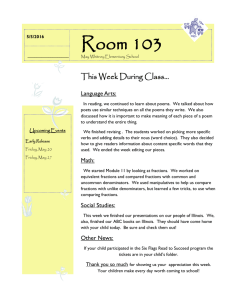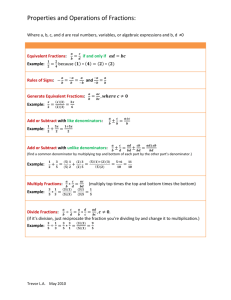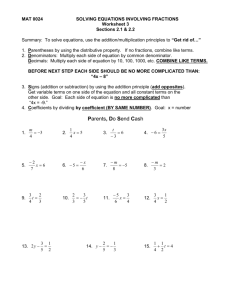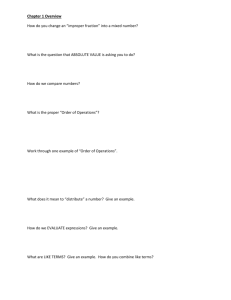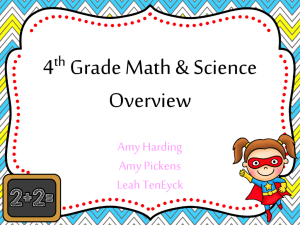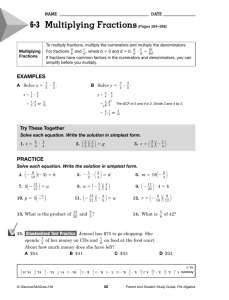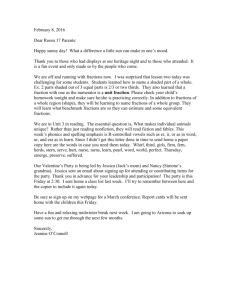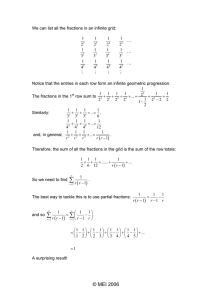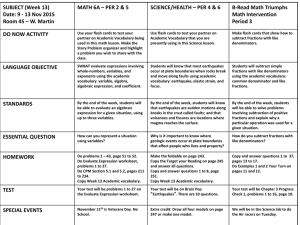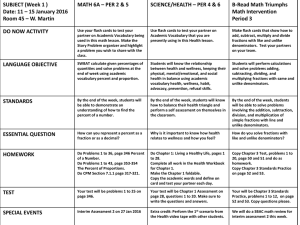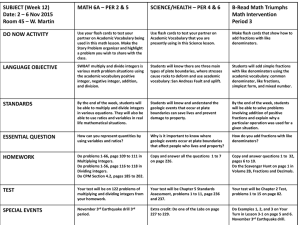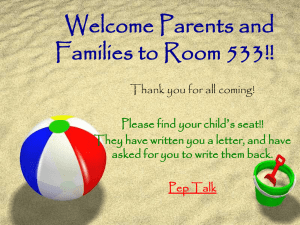Daily Planning for Today's Mathematics Classroom
advertisement
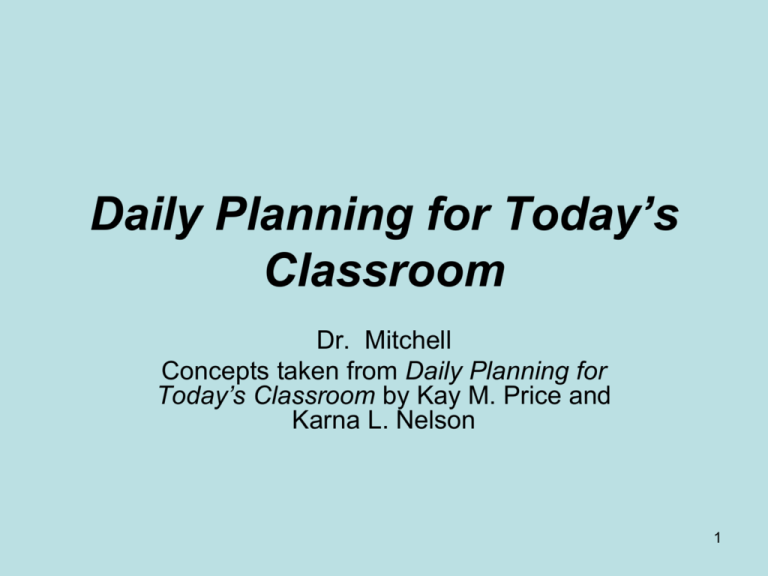
Daily Planning for Today’s Classroom Dr. Mitchell Concepts taken from Daily Planning for Today’s Classroom by Kay M. Price and Karna L. Nelson 1 Introduction • An effective lesson plan begins with a relevant clearly written objective. 2 Definition and Purpose • An objective is a description of a learning outcome. • Objectives describe where we want students to go – not how they will get there. • Well written objectives clarify what teachers want their students to learn, help provide lesson focus and direction, and help guide the selection of appropriate practice. 3 From General to Specific: Going from State Standards to Objectives • While state and national standards provide general content ideas, teachers are responsible for writing their own objectives for their lessons, activities and units. • A teacher’s job is to translate the standards into useful objectives that are used to guide instruction. • The learning outcomes included in the objectives will then be linked to the state standards. 4 How standards, goals, and objectives differ… • Specific –Objectives include specific learning outcomes where standards include general outcome statements. • Goals may be general, for example, understand the concept of fractions. • Long-Term or Short Term –Objectives are considered short term, they describe the learning outcome typically in days, or weeks. • Goals and standards describe learning outcomes that may be in weeks, months or years. 5 How standards, goals, and objectives differ… • Uses – Objectives are used in lesson and activity plans and IEPs. • Measurable annual goals are included in IEPs. • Goals may also be found in units of instruction. For example, a goal may be to understand how to add fractions. • A specific objective may be to be able to add fractions will common denominators. 6 The Four Components of an Objective • Content- What will the students learn during the next 50 minutes? • Use CT Standards for content 7 Behavior • Behavior- the behavior tells what the students will do to show that they have learned. • It is a verb that describes an observable action. (See Bloom) 8 Condition • Condition-It is important to describe the conditions or circumstances under which the student will perform the behavior. 9 Criterion • Criterion-The criterion is the level of acceptance performance, the standard of mastery of proficiency level expected. 10 Assessment • How will you know if your students have mastered the lesson objective or if your teaching was effective? 11 A Final Thought • It is very important to begin your lesson or activity with a clear idea of what you want your students to learn. • Writing a specific objective with the four components will cause you to think this through. • When teachers experience frustration with a particular lesson, they often have not stated a measurable objective. • If you clearly state the objective, you will know if your activity or lesson and your intended learning outcome match. You will be able to tell if your teaching was effective and whether your students learned. 12 Questions to Ask While Writing Daily Lessons • Why I am teaching this lesson? – Required curriculum? – Students interested in this topic? – Your interest in the topic? • What do I hope to accomplish? – Skill to be developed? – Concept to be discussed for understanding? – Product to be produced? 13 Questions to Ask While Writing Daily Lessons • Who are my students? – Range of abilities – Range of ages – Ethnic diversity and varying cultures? • Why I am teaching this lesson? – Required curriculum? – Students interested in this topic? – Your interest in the topic? 14 Questions to Ask While Writing Daily Lessons • What is the time frame for teaching this lesson? – Part of a unit? – One period or block scheduled? • How will I begin the lesson to capture the students’ attention? – Story or anecdote? – Relevance to their lives? – Props or visual displays? 15 Questions to Ask While Writing Daily Lessons • What resources will I need to teach this lesson? – Audiovisual or technology? – Student handouts? – Manipulatives? • How will students spend their time during the lesson? – Small group discussion? – Hands-on activities? 16 Questions to Ask While Writing Daily Lessons • How will this lesson be assessed in order to design next lessons? – Written responses? – Quiz/test? – Worksheet? • How will I close the lesson? • Will there be homework? • How will I know whether I succeeded in teaching the lesson? • How will the next lesson relate or build on this one? • Taken from Strategies for Successful Student Teaching: A Comprehensive Guide 17
